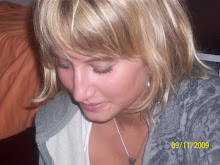A crisp, fresh and blank piece of paper has the potential of being a writer's greatest comrade, his right-hand man, his first mate, the element that helps create a masterpiece; or, it's the writer's fiercest enemy. It has the power to make one crumble into miniscule, self-loathing pieces. The once crisp and fresh page morphs into a stark demon, stiff with rage, towering over you, demanding that you fill it with your creativity before you fall into a discouraging heap; before your mind turns into your enemy: blank and void. And at his tyrannical demands, you frantically write, anything and everything just to please him, to escape the torture. But, after you fill a page babbling with nonsense, you calm down a bit. You realize you have the power to rip up this repulsive sheet. As you tear the loathsome sheet with one clean pull, you imagine the smooth metallic sound of a guillotine slicing through a tender neck. Yes, that demon is gone, but what rests behind it? Another empty piece, armed and ready to destroy you. You're not ready for this. Finding courage within, you grab the remnants of your former demon. You search wildly for any phrase or word that might contain creativity or worth. You dissect the page like an M.D performing an emergency transplant. Find what you need from the old patient and quickly put it into the new one, transforming it into a beautiful, strong organ, pumping and functioning perfectly in the new specimen. Your former page is dead, but the new blank one is suddenly rigorously alive. Your extractions from the former, strung together perfectly, become fabulous ideas in your new piece. And suddenly, this demon is replaced by a saint. What was seemingly nonsense is now brilliance. The pile of discouragement is now a mountain of possibilities, your shivering fear is now trembling excitement, and your once empty, voided brain is now pumping out ideas like a factory during the Industrial Revolution.
Alas, this is the life of a writer: any writer. You can never dismiss what your mind might perceive as nonsense. You can't fear the nakedness of a fresh page, a new start. An empty mind is the fall of the writer, the cancer of the pen. We all always have thoughts in our heads, whether it's anxieties, fears, hopes, dreams or something simplistic like what you wanna eat for lunch, it's always a good place to start if the fear of the blank page engulfs you. Just put down anything that's running through your head, ideas not even essentially related. Then, like Sherlock Holmes, analyze this "nonsense." Look for potential metaphors hidden in what might be viewed as an everyday word. Find the beauty and real meaning of your own thoughts. There exists a certain significance to very pondering, every wonder, every question and every opinion. As a writer, it's your job to uncover that beauty, or that darkness or that humor, what ever the case may be. As a writer, you can't hide behind words. You're already hidden by the page, which offers you an anonymity. You can embrace this capability of anonymity, the power to say something on paper that you might not otherwise confess face to face. Possessing this advantage, you have to follow through with the rest of the exchange. You have to be willing to express your emotions, in all degrees. You can't fear judgement and have to see that there are those who scorn, but there are also those who embrace. Being a writer means you are able to point out the imperfections of society; your emotions can console, can inspire, can anger, can cause change. A blank page, at times, may be the writer's worst fear, but you have to find a shield to dodge the arrows of discouragement. That shield is the ever presence of expressing ideas and your sword: the pen. Each writer has a duty to fulfill and if left unsatisfied, the only person left ashamed is he who failed to realize this obligation and his heart is left empty, blank and rigid like an ink-starved sheet of paper.





























